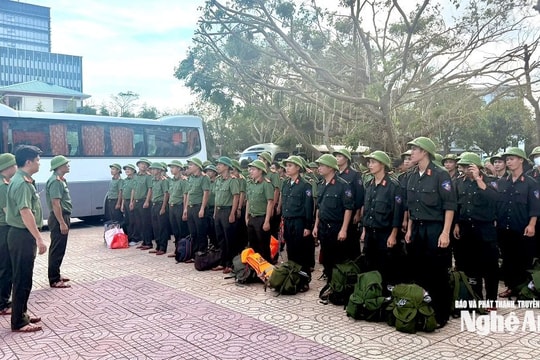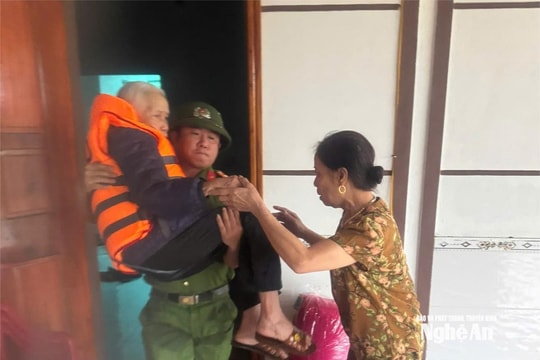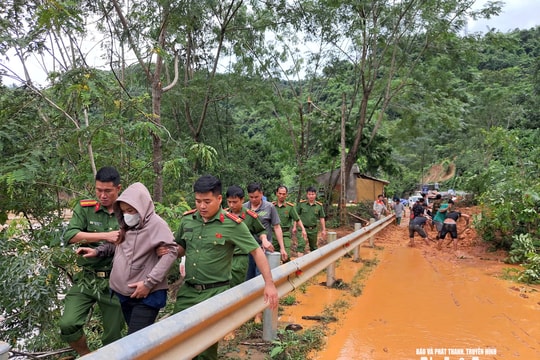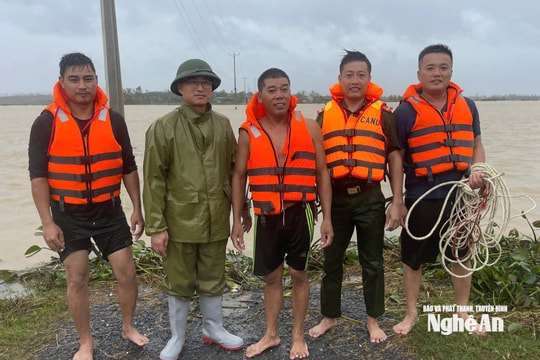In what cases can the police arrest people from July 1?
The 2015 Penal Code stipulates that arrests cannot be made at night, except in cases of flagrante delicto or arrests of wanted persons.
Chapter VII of the 2015 Penal Code, effective from July 1, specifically stipulates measures to prevent and enforce crimes and cases of arrest and detention by the police.
According to Article 109, in order to promptly prevent crimes or when there is evidence that the accused will cause difficulties for the investigation, prosecution, trial or will continue to commit crimes or to ensure the execution of the judgment, the competent authority or person conducting the proceedings within the scope of its authority may apply measures to detain a person in an emergency, arrest, temporarily detain, temporarily detain, bail, deposit money as security, prohibit leaving the place of residence or temporarily suspend exit.
Cases of arrest include: arrest of a person detained in an emergency, arrest of a person caught red-handed, arrest of a wanted person; arrest of a suspect or defendant for temporary detention; arrest of a person requested for extradition.
Hold people in case of emergency
Article 110 stipulates that in the following emergency cases, the police may detain a person: First, when there is sufficient basis to determine that a person is preparing to commit a very serious crime or an especially serious crime. Second, when a co-perpetrator or a victim or a person present at the scene of the crime saw with their own eyes and confirmed that the person committed the crime and it is deemed necessary to immediately prevent that person from escaping. Third, when there are traces of a crime on the person or at the residence, workplace or vehicle of the person suspected of committing the crime and it is deemed necessary to immediately prevent that person from escaping or destroying evidence.
Within 12 hours of detaining a person in an emergency or receiving a detainee in an emergency, the investigation agency or the agency assigned to conduct certain investigative activities must immediately take statements and must issue a decision to temporarily detain, issue an arrest warrant or immediately release the detainee. The arrest warrant for a detainee in an emergency must be immediately sent to the People's Procuracy at the same level or the competent People's Procuracy, along with documents related to the detention, for approval.
The warrant for arrest of a person detained in an emergency must clearly state the full name and address of the detainee, the reason and basis for the detention.
Catching criminals red-handed
According to the provisions of Article 111, any person who is discovered or chased while committing a crime or immediately after committing a crime has the right to arrest and immediately take the arrested person to the nearest police agency, prosecutor's office or people's committee. These agencies must make a record of receipt and immediately take the arrested person or immediately report to the competent investigation agency.
When catching a person red-handed, anyone has the right to disarm the arrested person.
In case the commune, ward, town police or police station discovers, arrests or receives a person caught red-handed committing a crime, they shall confiscate and temporarily detain weapons and dangerous weapons, preserve related documents and objects, draw up a record of the arrest, take initial statements, protect the scene according to the provisions of law, immediately release the arrested person or immediately report to the competent investigation agency.
Arrest a wanted person
The arrest of a wanted person is regulated in Article 112. Specifically, any person has the right to arrest and immediately take the arrested person to the nearest police station, prosecutor's office or people's committee. These agencies must make a record of receipt and immediately take the arrested person or immediately notify the competent investigation agency.
Just like when arresting a criminal red-handed, when arresting a wanted person, anyone has the right to take away the weapon or weapon of the arrestee.
In case the commune, ward, town police or police station discovers, arrests or receives a wanted person, they shall seize and temporarily detain weapons and dangerous items, manage related documents and objects, draw up a record of the arrest, take initial statements, immediately release the arrested person or immediately report to the competent investigation agency.
Arrest suspects and defendants for temporary detention
According to Article 113, those who have the right to order and decide to arrest suspects and defendants for temporary detention include: heads and deputy heads of investigation agencies at all levels, heads and deputy heads of people's procuracies and heads and deputy heads of military procuracies at all levels, chief judges and deputy chief judges of people's courts and chief judges and deputy chief judges of military courts at all levels, and trial panels.
The arrest warrant, decision approving the warrant, and decision on arrest must clearly state the full name and address of the person being arrested, the reason for the arrest, etc. The person executing the warrant or decision must read the warrant or decision, explain the warrant or decision, the rights and obligations of the person being arrested, and must make a record of the arrest and deliver the warrant or decision to the person being arrested.
When arresting a person at the place of residence of that person, there must be a representative of the commune, ward or town government and other witnesses. When arresting a person at the place of work or study, there must be a representative of the agency or organization where that person works or studies. When arresting a person at another place, there must be a witness of a representative of the commune, ward or town government where the arrest is made.
In addition, the law also clearly states that no one may be arrested at night, except in cases of flagrante delicto or arrest of a wanted person.
According to VNE


.jpg)

.png)



